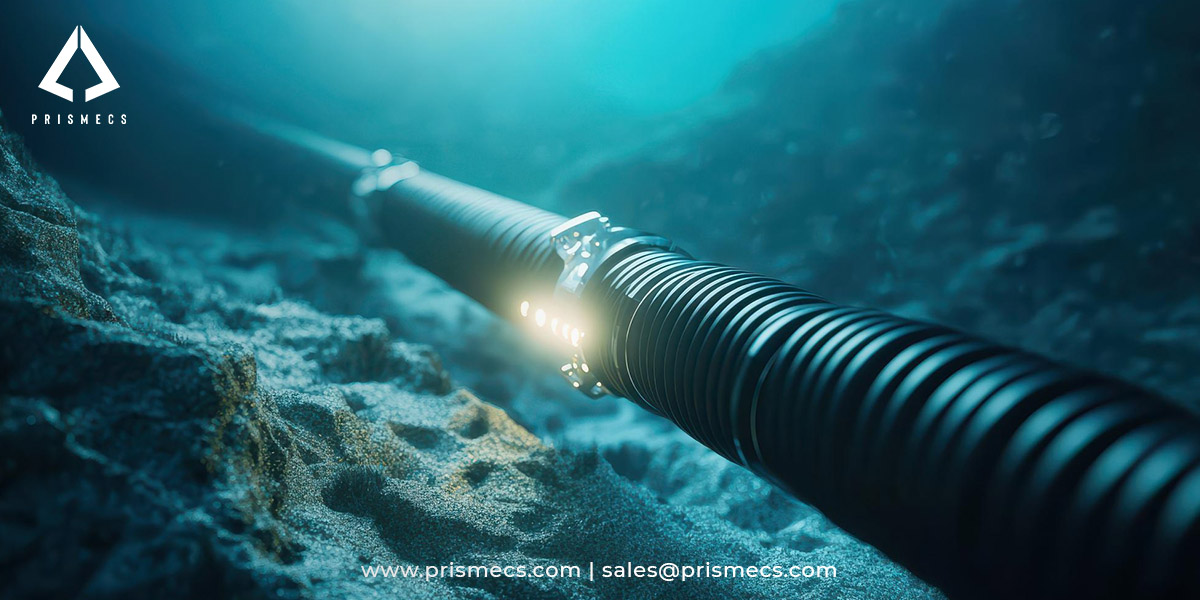
In an increasingly interconnected world, telecommunications infrastructure plays a crucial role in enabling global communication and connectivity. However, when it comes to marine telecommunications infrastructure, unique challenges and opportunities arise due to the harsh and dynamic marine environment. In this blog, we'll explore the key challenges facing marine telecommunications infrastructure and the opportunities for innovation and growth in this sector.
Challenges in Marine Telecommunications Infrastructure
From the harsh environmental conditions to the remote and inaccessible locations, the world of marine telecommunications infrastructure navigates a sea of difficulties. These challenges, ranging from regulatory complexities to security threats and technological limitations, present formidable barriers to the development, maintenance, and operation of underwater communication networks.
Harsh Environmental Conditions
The marine environment poses significant challenges for telecommunications infrastructure, including exposure to saltwater, extreme temperatures, and corrosive elements. This can lead to equipment degradation and increased maintenance costs.
Remote Locations
Marine telecommunications infrastructure often needs to be deployed in remote and hard-to-reach locations, such as offshore oil rigs, remote islands, and deep-sea environments. Accessing these areas for installation, maintenance, and repair can be logistically challenging and costly.
Underwater Cable Damage
Submarine cables are a critical component of marine telecommunications infrastructure, providing the backbone for global internet connectivity. However, these cables are susceptible to damage from ship anchors, fishing activities, and natural disasters, leading to disruptions in communication networks.
Regulatory and Permitting Issues
Building and deploying marine telecommunications infrastructure involves navigating complex regulatory frameworks and obtaining permits from multiple government agencies. Delays in obtaining permits can hinder project timelines and increase costs.
Security Concerns
Marine telecommunications infrastructure is vulnerable to security threats, including piracy, sabotage, and cyberattacks. Protecting underwater cables and offshore installations from these threats requires robust security measures and coordination with maritime authorities.
Opportunities in Marine Telecommunications Infrastructure
The opportunities in marine telecommunications infrastructure are vast and diverse, driven by the growing demand for high-speed connectivity, technological innovation, renewable energy integration, collaboration, and the development of emerging markets.
Subsea Cable Expansion
With the increasing demand for high-speed internet connectivity, there is a growing opportunity for the expansion of submarine cable networks. Investing in new submarine cable projects can improve global connectivity and unlock economic growth in underserved regions.
Innovative Technologies
Advances in technology, such as fiber-optic cables, satellite communications, and unmanned underwater vehicles (UUVs), are opening new possibilities for marine telecommunications infrastructure. These technologies enable faster data transmission, remote monitoring, and efficient maintenance of underwater assets.
Renewable Energy Integration
Marine telecommunications infrastructure can leverage renewable energy sources, such as wind, solar, and wave energy, to power offshore installations and reduce reliance on fossil fuels. Integrating renewable energy systems into marine telecommunications networks can enhance sustainability and resilience.
Collaboration and Partnerships
Collaborating with industry stakeholders, including telecommunications companies, maritime operators, and government agencies, can drive innovation and address common challenges in marine telecommunications infrastructure. Strategic partnerships can facilitate knowledge sharing, resource pooling, and joint investment in infrastructure projects.
Data Center Development
As demand for data storage and processing continues to grow, there is an opportunity to develop offshore data centers near marine telecommunications hubs. Offshore data centers benefit from lower cooling costs, renewable energy options, and proximity to submarine cable landing points, enabling faster data transmission and reduced latency.
Telecommunication Market Size
In 2024, the global telecom services market was valued at approximately USD 1.99 trillion. Projections indicate it will exceed USD 2.65 trillion by 2030, boasting a compound annual growth rate (CAGR) of 4.85% from 2024 to 2030.
The global telecom services market was valued at approximately USD 1.99 trillion in 2024.
Conclusive Remarks
The realm of marine telecommunications infrastructure is fraught with challenges yet brimming with opportunities for those willing to navigate its depths. By surmounting environmental obstacles, embracing technological innovation, fostering collaboration, and seizing emerging market opportunities, stakeholders can chart a course toward a more connected and resilient future on the high seas. As we sail into uncharted waters, let us harness the power of ingenuity and collaboration to realize the full potential of marine telecommunications infrastructure in shaping our interconnected world.
How Prismecs can help in the Challenges and Opportunities in Marine Telecommunications Infrastructure
Prismecs is dedicated to being at the forefront of innovation and solution-driven approaches to tackle the challenges and capitalize on the opportunities within marine telecommunications infrastructure.
It can offer innovative solutions tailored to the unique challenges of harnessing tidal, wave, and ocean thermal energy. With our commitment to reliability, technological excellence, and regulatory compliance, we stand ready to partner with stakeholders across the maritime industry to shape a future where seamless connectivity, resilience, and sustainability define the seascape.
Let's make a journey towards a connected maritime world with Prismecs solutions. To avail of our services, you can call us at +1 (888) 774-7632 or send us an email at sales@prismecs.com.
Tags: Marine resources marin resource recovery center Telecom Infrastructure Marine Technology Maritime Connectivity
recent posts

Power Generation
10 minutes read
How to Maximize Uptime in Power Generation Plants
Discover how Prismecs power plant maintenance helps operators prevent outages, protect revenue, and keep turbines running at peak performance. Learn h...

Renewables
8 minutes read
Opportunities in Renewable Energy Development
Explore Renewable Energy Development strategies focused on grid stability, faster deployment, and resilient power systems with Prismecs. Plan your nex...

Press Release
2 minutes read
Altaaqa Global & Prismecs Form Strategic Cooperation to Accelerate Modular Power Deployment Across USA
Prismecs and Altaaqa Global Announce Strategic Cooperation to Accelerate Modular Power Deployment in the United States Houston, TX & Dubai, UAE – Febr...

Procurement
9 minutes read
Complete Guide to Industrial Procurement Services
Explore Industrial Procurement Services for power and oil & gas projects. Cut delays, secure critical equipment, and build resilient supply chains wit...